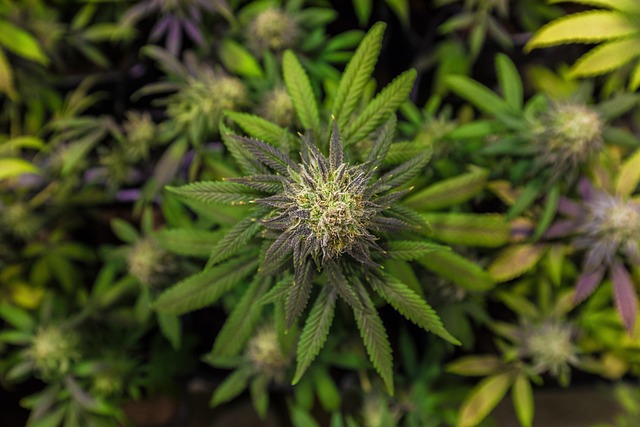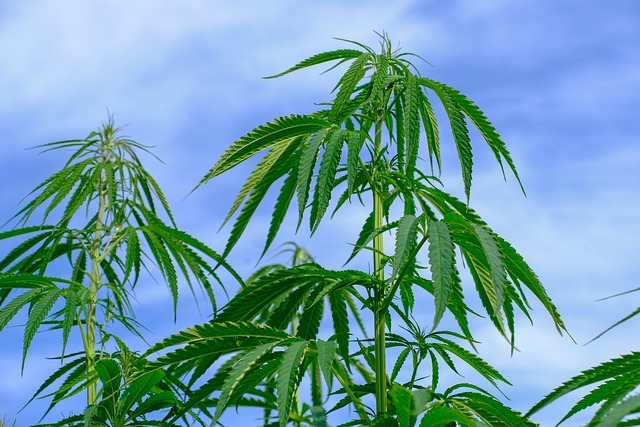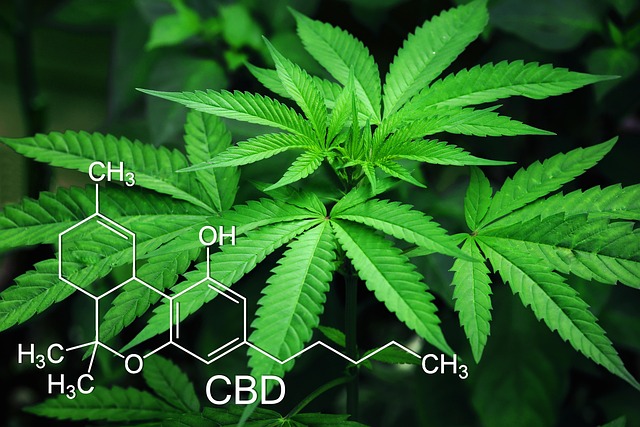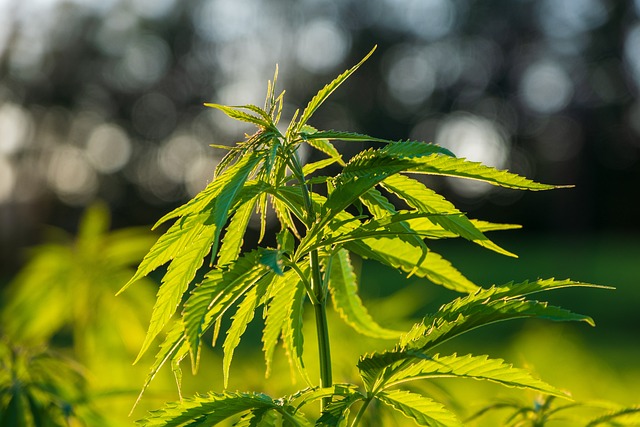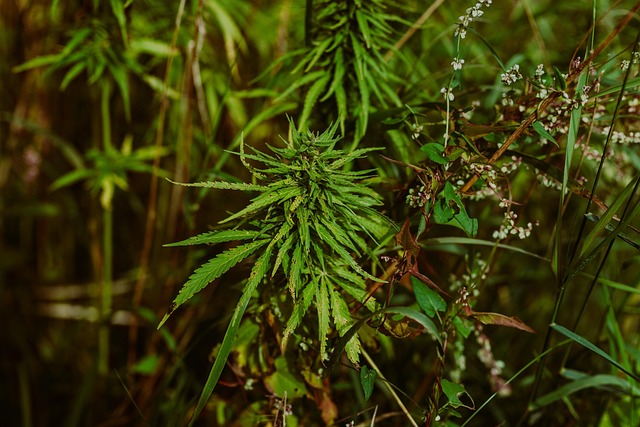Category: Natural hemp extract
Natural Hemp Extract: Unlocking a Sustainable Future
Introduction
In the ever-evolving landscape of natural resources and sustainable solutions, natural hemp extract has emerged as a powerful and versatile entity, capturing global attention and interest. This article aims to provide an in-depth exploration of this remarkable substance, its diverse applications, and its profound impact on various sectors worldwide. From its rich historical roots to its modern-day innovations, natural hemp extract is poised to shape a greener and more sustainable future.
Understanding Natural Hemp Extract: Unveiling the Basics
Definition:
Natural hemp extract refers to the process of deriving beneficial compounds from the cannabis plant (Cannabis sativa) through specialized extraction methods. Unlike its psychoactive counterparts, this extract focuses on harnessing the plant’s non-psychoactive chemical components, primarily cannabidiol (CBD) and other phytocompounds, known for their potential therapeutic benefits.
Core Components:
- Cannabidiol (CBD): The star compound of natural hemp extract, CBD is a non-intoxicating cannabinoid known for its anti-inflammatory, analgesic, and anxiolytic properties. It has gained immense popularity in the wellness industry for its potential to promote relaxation, improve sleep quality, and reduce pain without causing any psychoactive effects.
- Other Phytocompounds: In addition to CBD, hemp extract contains a diverse range of other phytocannabinoids, terpenes, and flavonoids, each contributing to its unique therapeutic profile. These compounds work synergistically to enhance the overall efficacy and potential benefits.
Historical Context:
The cannabis plant has been cultivated and utilized for centuries, dating back to ancient civilizations like China, India, and Egypt. Early uses included medicinal applications, textiles, and even spiritual rituals. However, with the discovery of different cannabinoid compounds, the modern era of hemp extraction and research began. In recent years, there has been a renewed global interest in natural hemp extract due to its potential health benefits and sustainability advantages over traditional synthetic alternatives.
Global Impact and Trends: A World Embracing Hemp
The global natural hemp extract market is experiencing exponential growth, driven by changing consumer preferences, scientific research, and supportive regulatory environments. Here’s a glimpse into its worldwide influence:
-
North America: Leading the charge in the legal cannabis industry, the United States has witnessed a surge in hemp cultivation and extraction. States like Colorado, Oregon, and Kentucky have become prominent hemp-producing regions, attracting investors and fostering innovation. The US market is characterized by advanced extraction techniques, diverse product offerings (including CBD oils, topicals, and edibles), and stringent quality control measures.
-
Europe: With a robust legal framework supporting industrial hemp cultivation, Europe has emerged as a major player in the global hemp industry. Countries like Germany, the Netherlands, and Poland have thriving hemp extract businesses, focusing on high-quality, organic production. European consumers are increasingly demanding natural, plant-based solutions for wellness and skincare, driving the market’s growth.
-
Asia Pacific: This region is witnessing a rapid expansion of the hemp industry, particularly in countries like China, Japan, and Australia. Chinese companies have been at the forefront of cannabis research, developing advanced extraction technologies. Japan, known for its stringent quality standards, has embraced hemp as a natural alternative to synthetic medications. Australia’s favorable climate and supportive regulations have also contributed to its growing hemp sector.
-
Global Market Trends:
- Regulation Relaxation: Many countries are relaxing their laws regarding cannabis and hemp cultivation, leading to increased access for research and commercial purposes.
- Wellness and Self-Care: The global wellness industry is booming, with consumers actively seeking natural remedies and self-care solutions. Hemp extract’s versatility in various products caters to this trend.
- Sustainability Focus: Hemp is renowned for its rapid growth rate and minimal environmental impact, making it an attractive sustainable alternative to traditional crops.
Economic Considerations: A Thriving Industrial Sector
The natural hemp extract industry has become a significant economic driver, attracting substantial investments and fostering job creation in multiple sectors.
Market Dynamics:
- Global Market Size: According to recent reports, the global hemp extract market is projected to reach USD 27.5 billion by 2027, growing at a CAGR of 23.4% (2020-2027).
- Regional Disparities: The North American market dominates, accounting for over 40% of the global share in 2021. However, Asia Pacific is expected to witness the highest growth rate during the forecast period.
- Product Diversification: CBD oil remains the leading product type, but the market is witnessing a surge in demand for hemp-derived cosmetics, fabrics, and biofuels.
Investment Patterns:
- The natural hemp extract industry has attracted significant venture capital investments, with startups focusing on innovative extraction methods, product development, and vertical farming techniques.
- Established pharmaceutical and wellness companies are also entering the market to capitalize on CBD’s therapeutic potential.
- International collaborations and partnerships are driving research and development, ensuring a diverse range of high-quality products.
Economic Impact:
- Hemp cultivation and extraction create employment opportunities in agriculture, manufacturing, research, and retail sectors.
- The industry contributes to rural economic development, particularly in regions with favorable climates for hemp cultivation.
- As the market matures, there is potential for further value addition through product diversification, leading to increased revenue streams.
Technological Advancements: Revolutionizing Extraction and Beyond
Technological innovations have played a pivotal role in shaping the natural hemp extract industry, improving efficiency, quality, and sustainability.
Extraction Techniques:
- CO2 Extraction: Considered the gold standard, CO2 extraction uses supercritical carbon dioxide to gently isolate CBD and other compounds from the plant material. This method ensures high purity and preserves the delicate nature of cannabinoids.
- Solvent Extraction: Using solvents like ethanol or hexane, this technique is cost-effective but requires careful management to avoid residual solvent levels in the final product.
- Ultrasonic-Assisted Extraction: Ultrasonic technology enhances extraction efficiency by using sound waves to break down plant cells, making it a faster and more environmentally friendly process.
Product Innovations:
- Nanoparticle Delivery Systems: Researchers are exploring ways to encapsulate hemp compounds in nanoparticles for improved bioavailability and targeted drug delivery.
- Hemp-derived Biofuels: Advancements in biotechnology enable the conversion of hemp biomass into sustainable biofuels, reducing reliance on fossil fuels.
- Textile and Fabric Applications: Modern processing techniques allow for the creation of high-quality hemp fabrics, offering a sustainable alternative to conventional textiles.
Future Technologies:
- Artificial Intelligence (AI) and Machine Learning: AI can optimize extraction processes by predicting optimal growing conditions and refining isolation methods.
- Blockchain Technology: Ensuring transparency and traceability, blockchain has the potential to revolutionize supply chains, allowing consumers to verify product authenticity.
Policy and Regulation: Navigating Legal Waters
The natural hemp extract industry operates within a complex web of policies and regulations, which vary significantly across regions, shaping its global trajectory.
International Regulations:
- The United Nations Convention on Psychotropic Substances places restrictions on cannabis and its derivatives, making it challenging for countries to cultivate and trade hemp without adhering to strict international guidelines.
- The World Health Organization (WHO) provides recommendations for the safety assessment of cannabis-derived medicinal products, including CBD.
Regional Legal Frameworks:
- North America: In the US, the 2018 Farm Bill legalized hemp cultivation and removed it from the Controlled Substances Act. Individual states have their own regulations regarding product sales and consumption. Canada has also decriminalized cannabis and established a legal framework for regulated sale and distribution.
- Europe: The European Union (EU) member states have varying approaches to hemp regulation. Some countries allow limited cultivation for research purposes, while others have stricter controls. The EU’s Novel Foods Regulation requires novel food products, including hemp-derived ones, to gain approval before market entry.
- Asia Pacific: China has relaxed its policies regarding cannabis research and cultivation, attracting international interest. Japan’s pharmaceutical-grade CBD oil is strictly regulated, while Australia allows for limited industrial hemp cultivation with specific licenses.
Challenges and Compliance:
- Ensuring product safety and quality remains a priority, especially as the market grows. Regulatory bodies are tasked with establishing standards and monitoring compliance.
- International trade complexities arise due to differing legal perspectives, requiring cooperation and harmonization of regulations.
- Businesses must navigate varying local laws, leading to increased administrative burdens.
Challenges and Criticisms: Overcoming Barriers
Despite its numerous benefits, the natural hemp extract industry faces several challenges and criticisms that require careful consideration and strategic solutions.
Main Concerns:
- Product Consistency and Quality: Ensuring consistent product quality across manufacturers is essential to gain consumer trust. Standardization of extraction methods and testing protocols can address this issue.
- Regulatory Uncertainty: The evolving legal landscape can create challenges for businesses, particularly in international markets. Clear and consistent regulations are necessary to foster industry growth.
- Misinformation and Stigma: Despite increasing awareness, misconceptions about hemp and CBD persist. Educating consumers and dispelling myths through scientific research is crucial.
- Environmental Concerns: While hemp is known for its sustainability, large-scale cultivation practices must consider water usage, soil health, and biodiversity to ensure long-term environmental stewardship.
- Intellectual Property Rights: Protecting proprietary extraction methods and product formulations is essential for innovation and business growth.
Strategic Solutions:
- Industry Collaboration: Forming partnerships between farmers, extractors, researchers, and regulatory bodies can lead to knowledge sharing, best practice adoption, and collective advocacy.
- Education and Awareness: Investing in educational initiatives, public awareness campaigns, and scientific research will help combat misinformation and foster a more informed society.
- Standardization and Certification: Implementing industry standards and certification programs for products can ensure quality and consumer protection.
- Sustainable Practices: Adopting eco-friendly cultivation methods, such as organic farming, water conservation, and waste reduction, is essential for long-term sustainability.
Case Studies: Real-World Applications and Success Stories
Case Study 1: CBD Oil for Epilepsy Treatment
A clinical trial in the US (2015-2017) investigated the efficacy of a CBD-rich hemp extract in treating epilepsy. The study involved 234 patients with drug-resistant epilepsy, and results showed a significant reduction in seizures, with minimal adverse effects. This case highlights the potential therapeutic benefits of natural hemp extract for neurological disorders.
Case Study 2: Hemp-derived Biofuel Production
In Australia, a startup company developed a sustainable biofuel made from hemp biomass. By utilizing advanced pyrolysis technology, they produced a high-quality fuel that met strict environmental standards. This project demonstrates the potential of natural hemp extract as a renewable energy source, reducing reliance on fossil fuels.
Case Study 3: Hemp in Agriculture and Soil Health
A farming community in Kentucky adopted industrial hemp cultivation as a rotation crop after corn and soybeans. Results showed improved soil health, increased organic matter, and enhanced water retention. This sustainable approach not only benefits farmers but also contributes to environmental conservation.
Future Prospects: A Glimpse into Tomorrow
The natural hemp extract industry is poised for continued growth and transformation, driven by technological advancements, shifting consumer preferences, and supportive regulatory environments. Here’s a look at potential future trends:
- Global Expansion: With increasing demand, the market is expected to witness significant growth in Asia Pacific, Europe, and Latin America, leading to further internationalization of the industry.
- Product Diversification: Research and development efforts will continue to expand product offerings, including novel food products, pharmaceuticals, cosmetics, and sustainable textiles.
- Sustainability Focus: As environmental concerns persist, the industry will focus on eco-friendly cultivation practices, renewable energy sources, and waste reduction strategies.
- Personalized Medicine: Advancements in extraction techniques and biotechnology may enable the development of personalized hemp-based treatments tailored to individual genetic profiles.
- International Cooperation: Harmonization of regulations and international collaborations will facilitate global trade and market access, fostering a unified industry.
Conclusion: Harvesting a Sustainable Future
Natural hemp extract has emerged as a versatile and sustainable solution, offering a wide array of benefits across various sectors. From its rich history to its modern-day applications, this remarkable plant continues to shape a greener and healthier world. As the industry navigates challenges and embraces technological advancements, it is poised to become an integral part of the global sustainability narrative.
By understanding and harnessing the potential of natural hemp extract, we can unlock new frontiers in wellness, agriculture, and sustainable development. The future looks bright for this ancient plant, as it brings about a revolution in various industries while fostering environmental stewardship.
FAQ Section: Answering Common Queries
Q: Is hemp extract the same as marijuana?
A: No, they are not the same. Hemp extract refers specifically to compounds derived from industrial hemp (Cannabis sativa L.) with minimal or no psychoactive effects. Marijuana, on the other hand, is a term generally used for cannabis plants with higher concentrations of tetrahydrocannabinol (THC), the compound responsible for its intoxicating properties.
Q: Are there any side effects associated with hemp extract?
A: Generally, hemp extract is considered safe when used as directed. However, like any natural product, it may cause mild side effects such as dry mouth, drowsiness, or gastrointestinal discomfort in some individuals. It’s always advisable to consult a healthcare professional before starting any new supplement regimen.
Q: Can hemp extract replace traditional medications?
A: Hemp extract has shown promise in treating various conditions, but it should not be considered a replacement for conventional medications without medical supervision. Always seek advice from healthcare providers regarding treatment options and the appropriate use of natural supplements alongside prescribed drugs.
Q: How does hemp extraction differ from cannabis extraction?
A: Hemp extraction focuses on isolating non-psychoactive cannabinoids like CBD, while cannabis extraction aims to derive a wide range of cannabinoids, including THC. Hemp extraction techniques, such as CO2 or ultrasonic methods, are designed to preserve the therapeutic properties of CBD and other phytocompounds without introducing psychoactive compounds.
Q: Is the hemp industry regulated? How does it vary globally?
A: Yes, the hemp industry is subject to various regulations worldwide due to its complex legal status regarding cannabis. Regulations differ significantly across countries and regions, affecting cultivation, extraction, and product sales. Some countries have relaxed their laws, while others maintain strict controls, leading to varying levels of market accessibility and consumer protection.
Natural Hemp Extract: Save Money, Boost Energy & Sleep Naturally
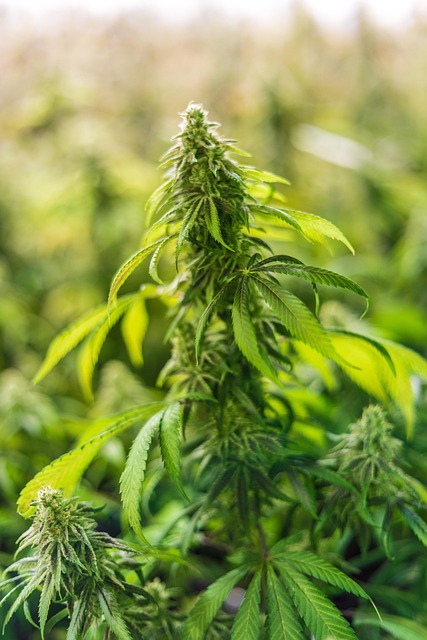
Tired of overspending on sugary and synthetic energy boosters? Discover the natural, sustainable ans…….
Natural Hemp Extract: Unleash Focus, Save Money, Power Your Day

Tired of the ups and downs of caffeine? Discover Natural Hemp Extract, a powerful, natural energy bo…….
Unleash Your Energy: Natural Hemp Extract + Caffeine for Instant Focus
Unleash Sustainable Energy: Save with Natural Hemp Extract Today!
Unlock Compliant Profits with Natural Hemp Extract: Free Guide to Streamline Regulations
Natural Hemp Extract: Save Money, Quench Thirst, Gain Energy!

Tired of breaking the bank on sugary drinks that leave you feeling drained? Discover our Sugar-Free…….
Sustainably Savor: Natural Hemp Extract Drinks, Save Money & Planet!

Tired of overspending on environmentally harmful products? Discover the affordable and sustainable s…….
Experience Instant Energy: Natural Hemp Extract – Free Sample!
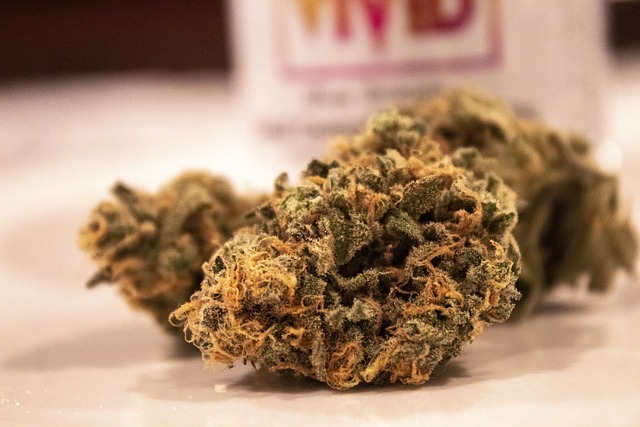
Tired of spending big on energy drinks that leave you tired and craving more? Say hello to Pure Hemp…….
